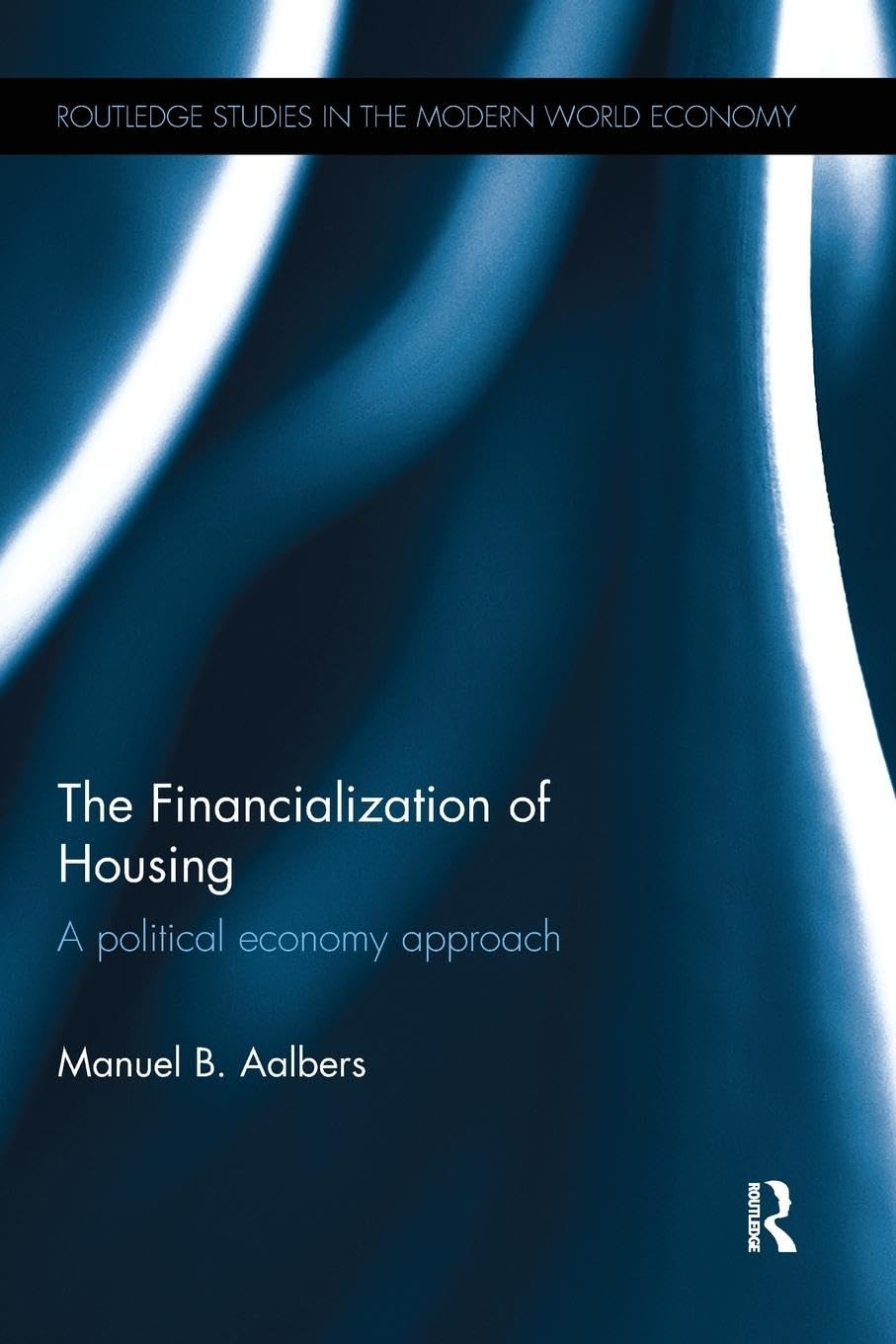The Financialization of Housing: A political economy approach (Routledge Studies in the Modern World Economy)
The Financialization of Housing: A political economy approach (Routledge Studies in the Modern World Economy) is backordered and will ship as soon as it is back in stock.
Couldn't load pickup availability
Genuine Products Guarantee
Genuine Products Guarantee
We guarantee 100% genuine products, and if proven otherwise, we will compensate you with 10 times the product's cost.
Delivery and Shipping
Delivery and Shipping
Products are generally ready for dispatch within 1 day and typically reach you in 3 to 5 days.
Book Details
-
Author: Manuel B. Aalbers
-
Brand: Routledge
-
Edition: 1
-
Binding: Paperback
-
ISBN: 9781138092907
-
Number of Pages: 158
-
Release Date: 16-05-2017
-
Languages: English
-
Package Dimensions: 9.1 x 6.1 x 0.7 inches
About the Book
"Financialization of Housing" delves into the growing influence of financial actors and markets on the housing sector, a process commonly referred to as financialization. The book examines the structural transformation of economies, firms, and households as housing increasingly becomes intertwined with financial markets, thereby turning housing risks into financial risks.
A major focus is the rise of housing as a high-quality collateral (HQC) investment in the global financial system. This shift explains why housing is becoming more financialized but does not fully account for the politics, timing, and geography of this phenomenon.
Through a diverse range of case studies from countries like the US, UK, Netherlands, Germany, Italy, and Spain, Aalbers explores how state policies, local histories, and institutional frameworks have contributed to this transformation. The book also critically assesses how this financialization is shaping both homeownership and social housing.
By placing housing at the center of the financialization debate, this volume presents a timely and essential contribution to the field of international economics, economic geography, and financialization studies. It is a must-read for anyone interested in understanding the deepening connection between housing markets and global finance.





